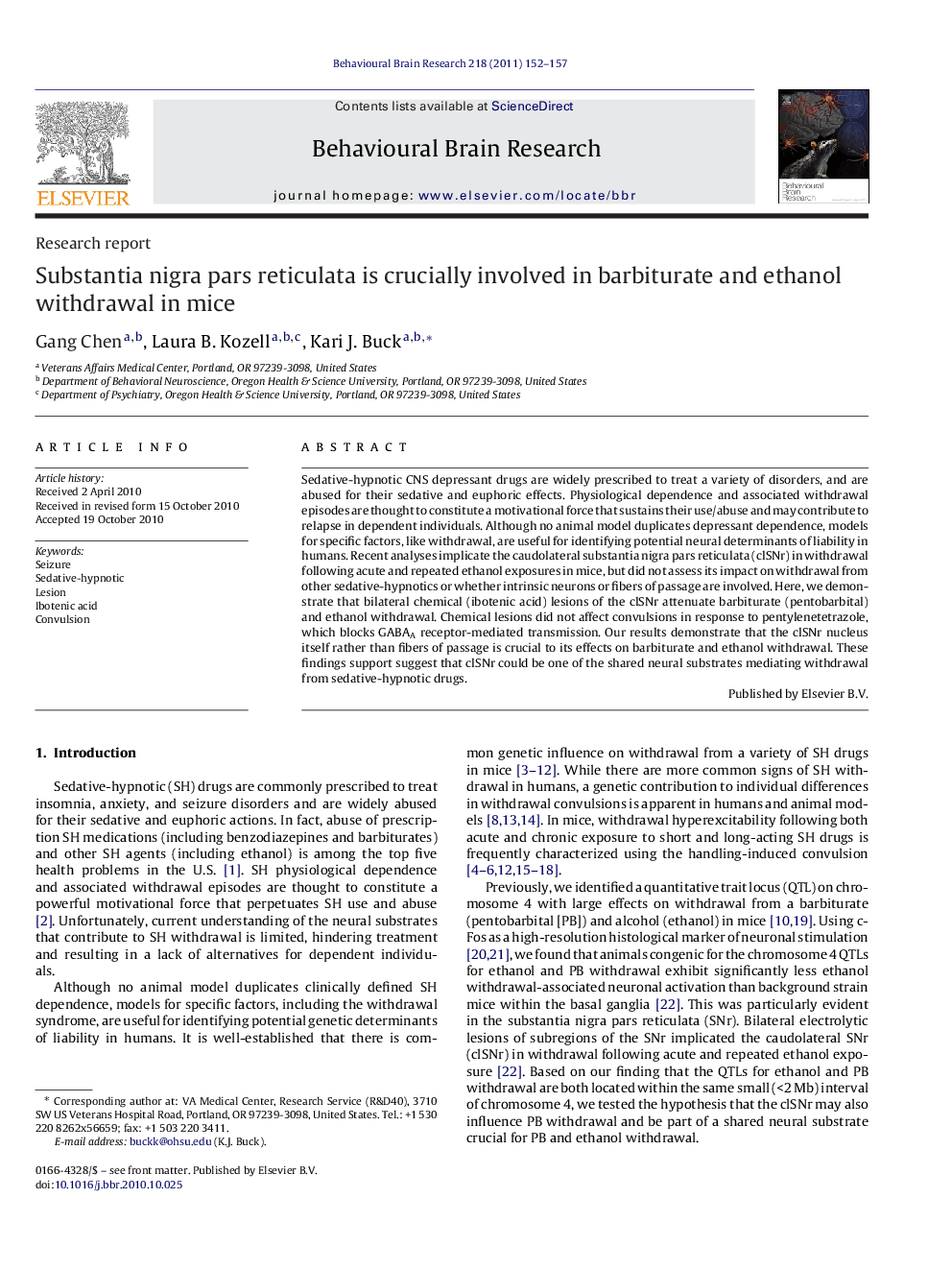| کد مقاله | کد نشریه | سال انتشار | مقاله انگلیسی | نسخه تمام متن |
|---|---|---|---|---|
| 6259914 | 1290012 | 2011 | 6 صفحه PDF | دانلود رایگان |

Sedative-hypnotic CNS depressant drugs are widely prescribed to treat a variety of disorders, and are abused for their sedative and euphoric effects. Physiological dependence and associated withdrawal episodes are thought to constitute a motivational force that sustains their use/abuse and may contribute to relapse in dependent individuals. Although no animal model duplicates depressant dependence, models for specific factors, like withdrawal, are useful for identifying potential neural determinants of liability in humans. Recent analyses implicate the caudolateral substantia nigra pars reticulata (clSNr) in withdrawal following acute and repeated ethanol exposures in mice, but did not assess its impact on withdrawal from other sedative-hypnotics or whether intrinsic neurons or fibers of passage are involved. Here, we demonstrate that bilateral chemical (ibotenic acid) lesions of the clSNr attenuate barbiturate (pentobarbital) and ethanol withdrawal. Chemical lesions did not affect convulsions in response to pentylenetetrazole, which blocks GABAA receptor-mediated transmission. Our results demonstrate that the clSNr nucleus itself rather than fibers of passage is crucial to its effects on barbiturate and ethanol withdrawal. These findings support suggest that clSNr could be one of the shared neural substrates mediating withdrawal from sedative-hypnotic drugs.
Research highlightsⶠElectrolytic and chemical lesions of clSNr attenuate pentobarbital withdrawal. ⶠEthanol withdrawal is also attenuated by clSNr chemical lesions. ⶠChemical lesions of clSNr don't alter PTZ-enhanced convulsion.
Journal: Behavioural Brain Research - Volume 218, Issue 1, 17 March 2011, Pages 152-157